Satellite image of the month – February – Lower Saxony (Germany)
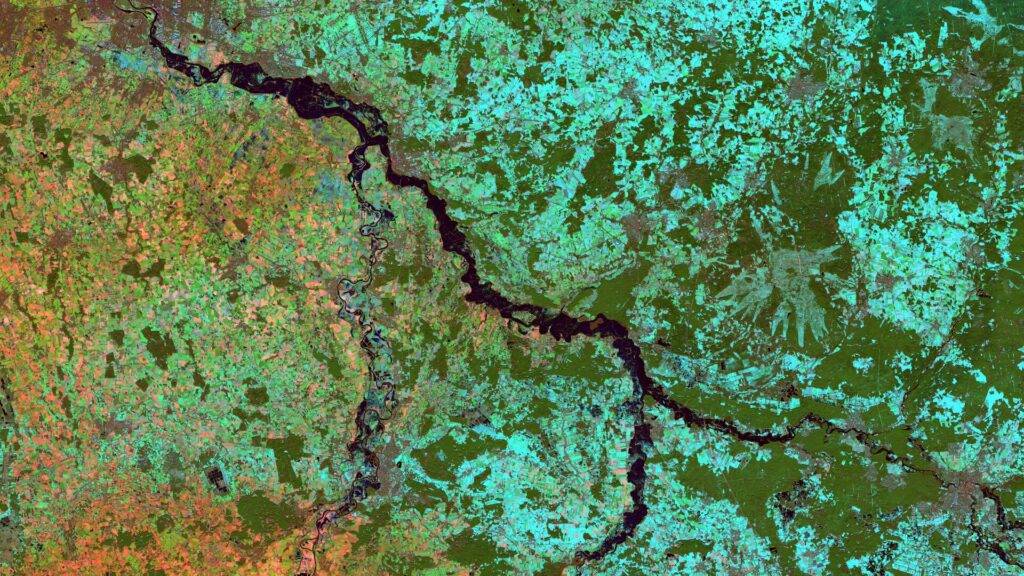
Lower Saxony – Germany, recordedby the Sentinel-2B satellite on December 15, 2022 and January 09, 2024 The satellite image of the month February is the second part of our twelve-part visual journey. It continues the theme of “Acute hazards – visible from space”, dealing with natural hazards, their visible effects and the possibilities of satellite-based analysis. The image shows […]
Heat Stress Maps – Webinar-recording now online
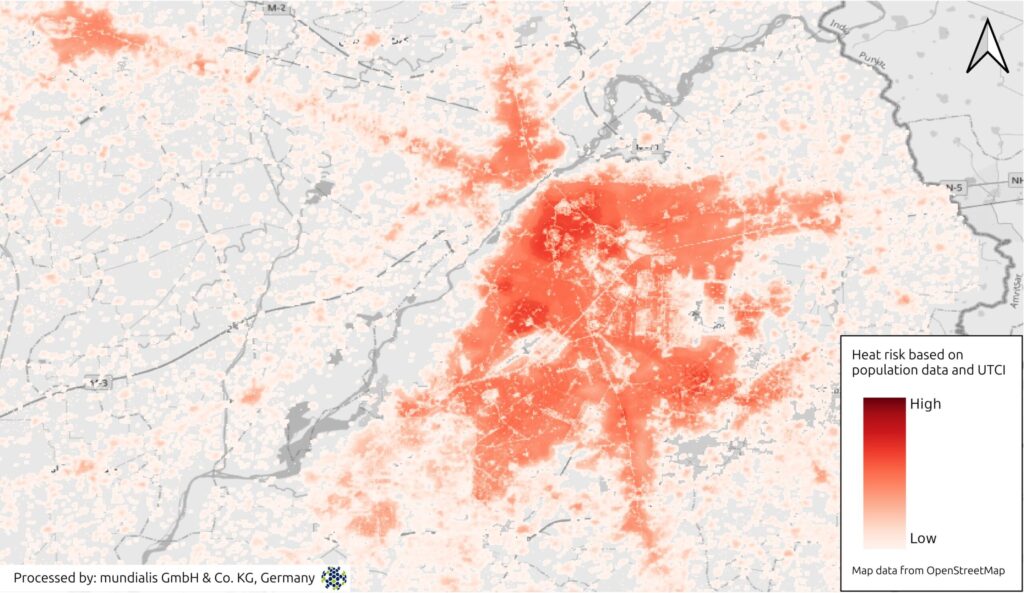
Extreme heat is becoming an increasing challenge for cities and regions worldwide. In this webinar, we demonstrate how Earth observation (EO) and remote sensing data can be used to systematically assess heat-related risks. Participants will receive a concise overview of relevant data sources, remote sensing methods, and commonly used heat and heat stress indices. Using […]
Projektabschluss: Transformationspotenziale großflächiger Parkplätze

Das vom Bundesinstitut für Bau-, Stadt- und Raumforschung (BBSR) initiierte Forschungsprojekt„Transformationspotenziale großflächiger Parkplätze für den nachhaltigen Stadtumbau“ist abgeschlossen und das Team trifft sich zum Nachklapp. Ziel war es, bislang wenig beachtete Parkplatzflächen systematisch zu erfassen und ihr Potenzial für eine nachhaltige Weiterentwicklung sichtbar zu machen – nicht durch pauschalen Stellplatzabbau, sondern durch qualitative Aufwertung in funktionaler, städtebaulicher […]
A Look Back on 2025
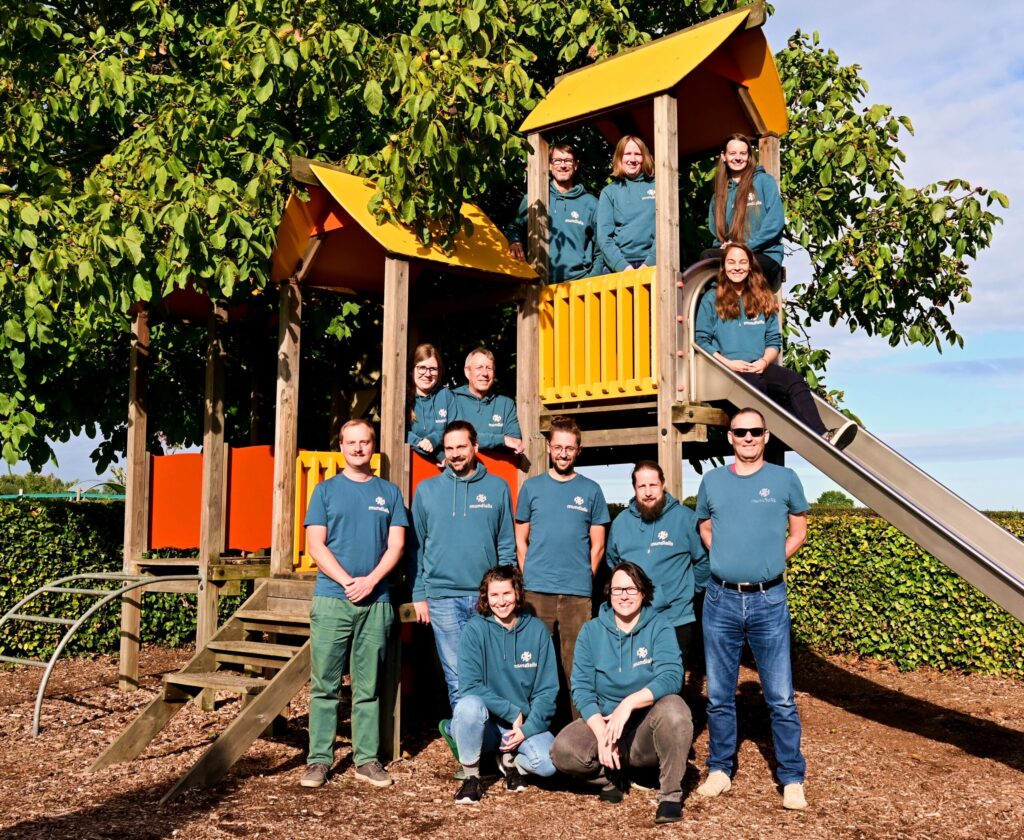
2025 has been a special year for us in many ways—not least because we are celebrating our 10th anniversary. Over this time, our team has grown considerably. Our group photo was taken in September during our retreat in Slenaken—on a playground. And that suits us well: play fosters creativity, collaboration, and well-being, all of which […]
Heat Stress Maps – Webinar Invitation
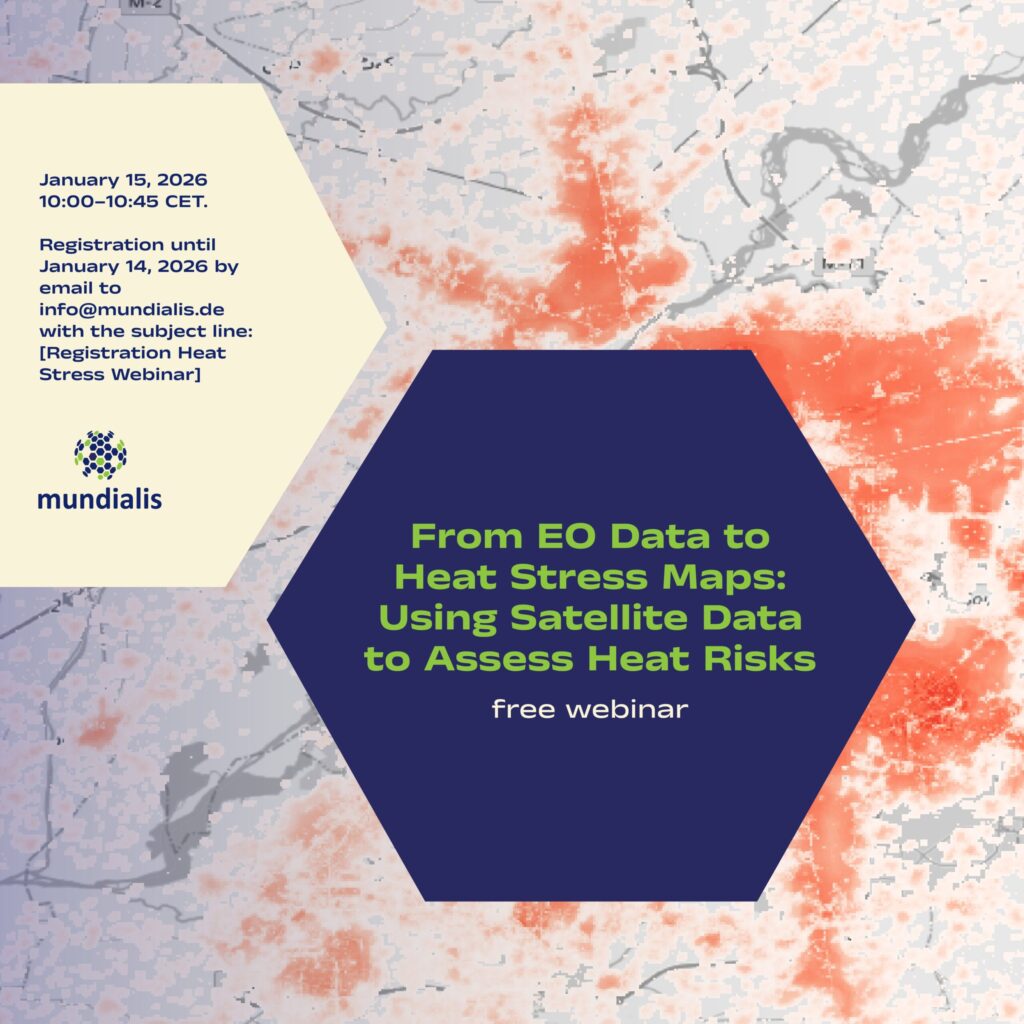
We are pleased to invite you to the online webinar “From EO Data to Heat Stress Maps: Using Satellite Data to Assess Heat Risks” on 15 January 2026, 10:00–10:45 CET. What the webinar is about Extreme heat is becoming an increasing challenge for cities and regions worldwide. In this webinar, we demonstrate how Earth observation (EO) and […]
mundialis is now a member of the Open Source Business Alliance!
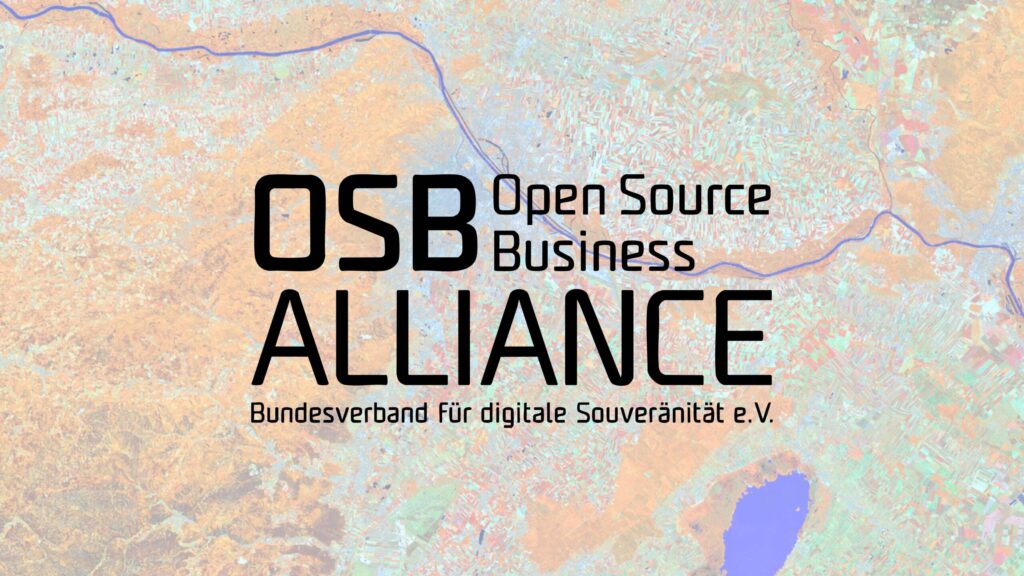
We are pleased to announce that mundialis is now a member of the Open Source Business Alliance (OSBA). The OSBA is Germany’s largest network of companies and organizations committed to Free and Open Source Software (FOSS). As a company specializing in Earth observation, we work daily with satellite and geospatial data and consistently rely on open-source technologies—out of […]
Einladung zum Webseminar „KI-gestützte Versiegelungsanalyse”
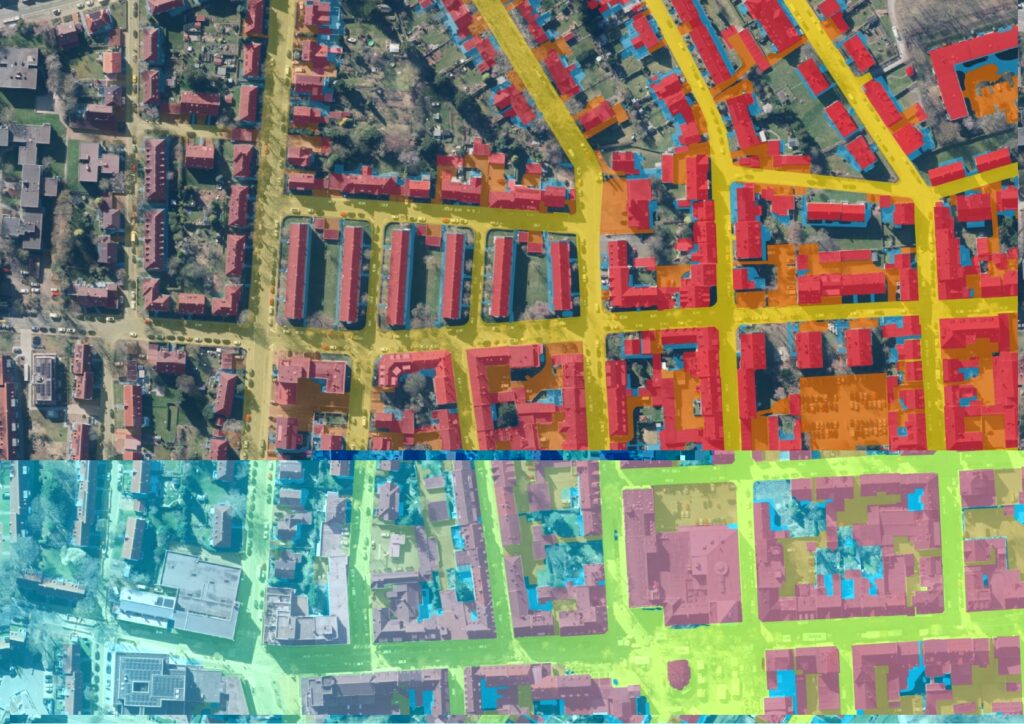
Wir laden Sie und Euch herzlich zum Webseminar „KI-gestützte Versiegelungsanalyse – Flächenversiegelung für die Abwasserwirtschaft“ am 20.11.2025 von 10-10:45 Uhr ein! Darum geht’s: mundialis hat ein flexibles KI-Framework zur Differenzierung von Oberflächenklassen aus frei verfügbaren Luftbildern entwickelt, das wir in zwei Webseminaren vorstellen. Dieser erste Teil beleuchtet ein Praxisbeispiel aus der Abwasserwirtschaft: Wir erläutern unser Vorgehen […]
Waldmonitoring mit Sentinel-2 – Webinar-Aufzeichnung
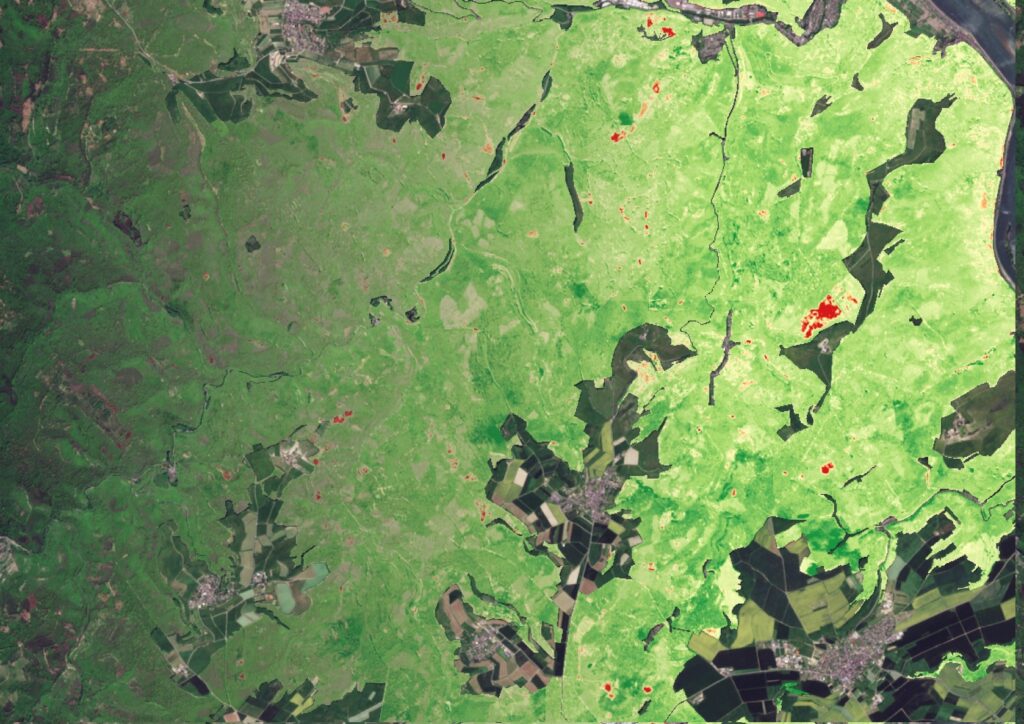
In diesem Webseminar erläutern wir, wie aktuelle Satellitendaten modernes Waldmanagement unterstützen können. Wir zeigen, wie aus Sentinel-2-Daten nutzbare Informationen entstehen, erläutern unsere Analyseverfahren und stellen die eingesetzten Tools vor. Anhand praxisnaher Beispiele erfahren Sie, wie sich Veränderungen erkennen und langfristige Entwicklungen im Wald ableiten lassen. Für alle, die fundierte Einblicke in moderne Monitoring-Methoden und ihre […]
10 Years of mundialis – Looking Back on Open Paths
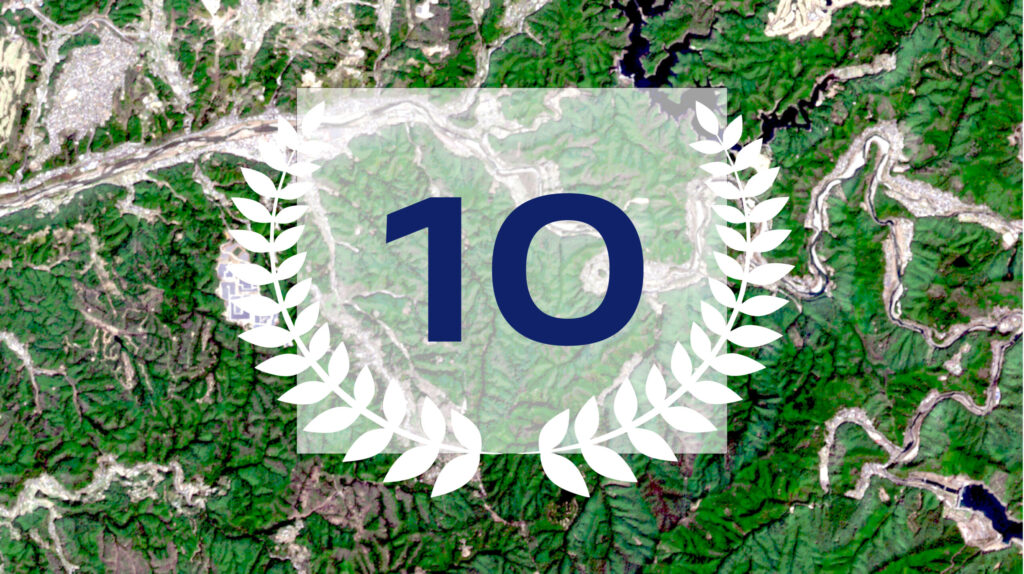
In 2015, we started with the conviction that there are better ways to work with data. Without licensing barriers. Without black boxes. Instead: openness, transparency, and shared learning. We work with data from space, but we keep both feet firmly on the ground.We develop publicly accessible software because we believe that knowledge should be shared. […]
Recap of the Open Day Photogrammetry 2025

Last week, we had the opportunity to gain fascinating insights into the technology of aerial imaging at this year’s Open Day Photogrammetry at Dortmund Airport – including a close-up look at the specially equipped aircraft regularly used for aerial surveys. As a company that uses aerial imagery as a data foundation, we hosted a workshop […]
